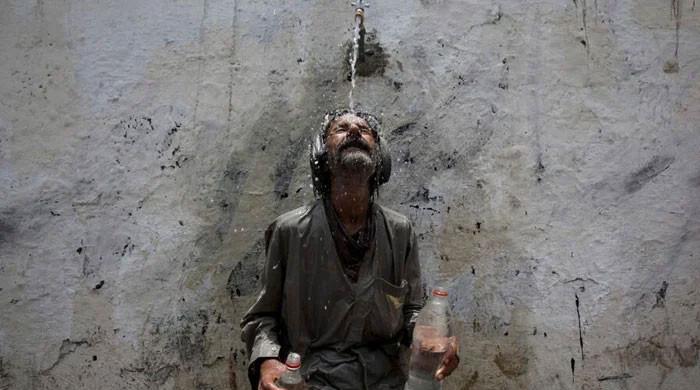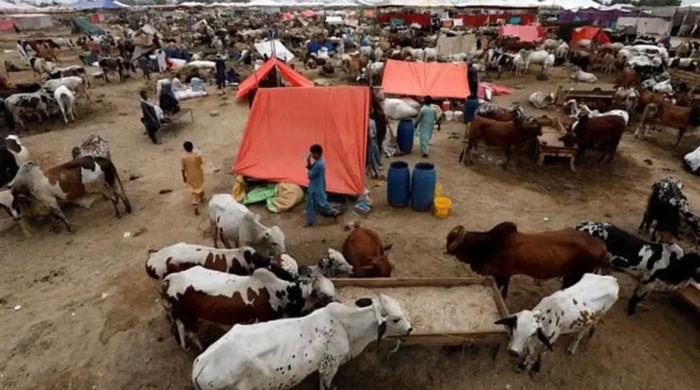Cameras, trackers to be installed in heavy vehicles
Goods transporters call off their strike following successful negotiations with commissioner Karachi
April 19, 2025
- Safety guardrails will be installed along tires of HTVs.
- Recording from trackers will be accessible at DIG Traffic office.
- Fitness of all large vehicles to be ensured within 3 to 6 months.
KARACHI: In a landmark move, Commissioner Karachi Syed Hassan Naqvi has made the installation of cameras and trackers in heavy traffic vehicles (HTVs) mandatory in light of the recent spike in traffic accidents across the port city.
The decision came after goods transporters called off their strike following successful negotiations with commissioner Karachi, which had seriously impacted port operations and trade in the city.
A key outcome of the negotiations was the commissioner's mandatory directive for all HTVs, including dumpers, water tankers, and oil tankers, to install three cameras.
According to Imdad Naqvi, a leader of the goods transporters association, one camera will be mounted on the front bonnet, one at the rear, and one inside the vehicle.
The camera inside the vehicle will help monitor the condition of the driver.
Traffic mishap-related fatalities have resulted in the deaths of over 250 people, of which 85 were caused by accidents involving heavy vehicles.
The alarming rise in fatalities sparked widespread public outrage and protests, with the public even resorting to torching heavy vehicles.
The Sindh government imposed a daytime ban on the movement of heavy vehicles in Karachi, coupled with stringent measures such as a 30 kilometres per hour speed limit for HTVs operating in the city.
The commissioner has also issued strict orders prohibiting the movement of dumpers on Karachi's roads between 10pm and 6am.
These stringent measures were the central point of the discussion during the negotiations, which commenced last night and continued into the morning.
Furthermore, safety guardrails will also be installed along the tires of HTVs.
Additionally, heavy vehicles will now be equipped with trackers to enhance accountability and aid in post-accident investigations.
Imdad stated that the recording from these trackers will be accessible at the DIG Traffic office, enabling authorities to track vehicles in case of hit-and-run incidents.
The goods transporters association also agreed to ensure the fitness of all large vehicles, including dumpers and tankers, within three to six months.
Progress reports on vehicle tonnage and the implementation of safety measures will be submitted to the commissioner and DIG every 10 days.
While acknowledging the progress, Imdad noted that the government's initial deadline of May 1 for these measures was impractical.











